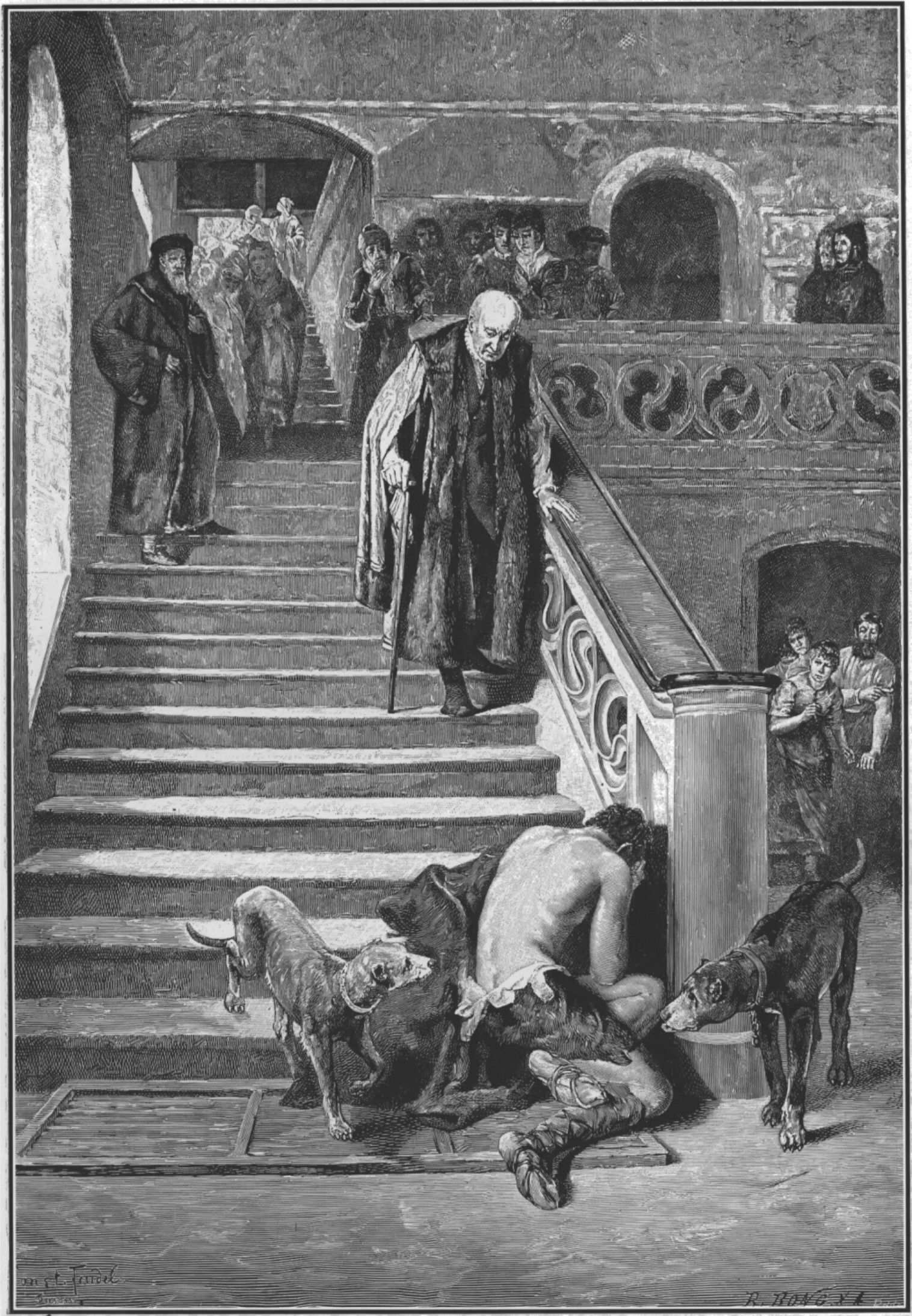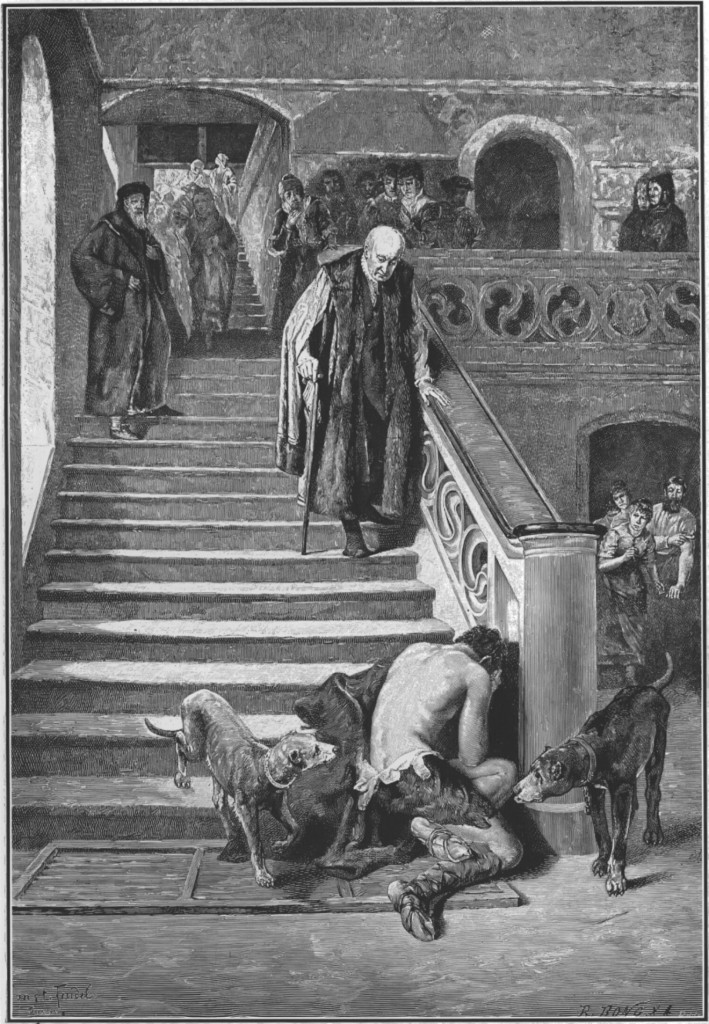I recently gave one of the most shaping books for my Christian walk – Tim Keller’s The Prodigal God – to my father for his birthday. This book is a short but powerful exposition of the Parable of the Two Brothers from Luke 15:11-32. As I was flipping through the pages and remembering how fond I was of this book, I was struck by one paragraph that I came across at the end of the first chapter. When comparing the difference between the disobedient younger brother and the moralistic, in-it-for-himself elder brother, author Tim Keller writes this:
“Jesus’ teaching consistently attracted the irreligious while offending the Bible-believing, religious people of his day. However, in the main, our churches today do not have this effect…That can only mean one thing. If the preaching of our ministers and the practice of our parishioners do not have the same effect on people that Jesus had, then we must not be declaring the same message that Jesus did. If our churches aren’t appealing to younger brothers, they must be more full of elder brothers than we’d like to think.” (Keller, 15-16)
The climate of the Western Church over the last two centuries has tried two great experiments. The first is the desire to make everything relevant in the church. Exegete and preach the Word, sure, but exegeting and preaching the culture instead is what attracts people, right? On paper, these dear brothers and sisters would still hold to an orthodox Christian faith, but their practice looks much different. A watered-down gospel is preached which lacks the conviction of sin and the grace of our Savior, all-the-while flooding congregants with bright lights and showering them with comfort.
The second experiment has been to reject traditional Christian teachings. If the “dogmatic” authority of the Bible is rejected, if the traditional ethical teachings of Jesus are ignored, if the historic creeds and confessions of the Church are disregarded, then we offer people to come to Christ and stay as they are. If we make Christianity easier for people – so they say – then more people will be attracted to Christ. Yet, these mainline churches are dying just as fast, if not faster, as the first group. There is no gospel-driven power to change in this proclamation. What is sold in these churches is no different than what the world is selling – except the world sells it for much cheaper.
And what is the result of such experimentation? I think author and scholar David Wells puts it best:
“Today, in the evangelical church, there are apparently many who have made decisions for Christ, who claim to be reborn, but who give little evidence of their claimed relationship to Christ. Something is seriously amiss if, as George Barna has reported, only 9 percent of those claiming rebirth have even a minimal knowledge of the Bible, if there are no discernible differences in how they live as compared with secularists, and if the born-again are dropping out of church attendance in droves. If these numbers are anywhere close to being accurate, then the gospel has become a stand-alone thing, and many who say they have embraced it have never entered the Christian life to which it was supposed to be the entry point.” (David F. Wells, God in the Whirlwind: How the Holy-Love of God Reorients Our World, 158)
This dilemma is one area where the teachings and emphasis of the saints of our past can greatly correct and aid us. Orthodox Christianity has always emphasized three important aspects to a saving faith, which come from the earthly ministry of Jesus Christ given to us through his Word:
- Knowledge: We need to know rightly who Christ is, that he alone has the power to save (John 14:6). We need to know and understand that he alone takes away the sin of the world (John 1:29), that he alone is the eternal begotten Son of the Father sent into the world to save sinners (Isaiah 49:6, John 1:1, Mark 2:17, Mark 10:45). If we say we believe in Jesus but do not understand rightly who he is, that is not faith; it’s idolatry.
- Conviction: It is necessary that we be convicted of our sin. We must understand that faith and repentance go hand in hand (Matthew 4:17). We as sinners must know rightly that we are indeed sinners and where that places us before a Holy God. We must be convicted that Christ knows what to do with our sin when we come to him (John 6:68).
- Trust: Every fiber of our being must places its trust in the grace of Christ and not in our own moralism (John 1:17, Luke 24:47). We must transfer the trust from ourselves and our efforts to earn anything to the once-and-for-all work of the blood-stained Savior.
Both the elder brother and the younger brother knew who their father was (Luke 15:12). Yet, it was the prodigal younger brother who was convicted (Luke 15:17-19) and then trusted (Luke 15:20-24) in his father, which led to the great feast at the prodigals homecoming. The elder brother was never convicted of his dependance on his father and therefore never trusted him, and it is for this reason he remained outside of the great banquet. Despite his good works and high sense of morals, the elder brother never came in to the feast. If we want to see more prodigals come home and more moralistic church attenders come to the banquet, then we must present and live out a holistic gospel.
Church, let us press in to be faithful to the God who has called us home to the banquet feast.
Having eyes do you not see, and having ears do you not hear? – Mark 8:18
—–
The Scriptures are clear that God’s love and grace toward us in Christ fuel our love for God and our neighbor. There is no way that we can work for grace and we do not work our way to God. This would defeat the very meaning of the word.
Despite this redemptive reality seen in Jesus, this concept is often lost in today’s churches. Some claim that this idea of grace-fueled obedience would lead to apathy, lawlessness and passiveness (antinomianism). Others, proving the point of the former group, say that any kind of “work” is just meaningless religion, and all that matters is that you claim the name of Jesus and believe he died for sins.
As is often the case, both extremes completely miss the point. To explain this concept I’d like to turn to the letter of 1 John, specifically the opening verses, and show that the Apostle gives us a better way forward to think about these things. Let us examine the opening verses to this letter:
That which was from the beginning, which we have heard, which we have seen with our eyes, which we looked upon and have touched with our hands, concerning the word of life— the life was made manifest, and we have seen it, and testify to it and proclaim to you the eternal life, which was with the Father and was made manifest to us—that which we have seen and heard we proclaim also to you, so that you too may have fellowship with us; and indeed our fellowship is with the Father and with his Son Jesus Christ. And we are writing these things so that our joy may be complete. – 1 John 1:1-5
I’ve specifically bolded a few words in this passage for a reason. In these opening verses, John is giving a tell of sorts; he is making his point before he actually makes THE point. You see, these verbs – have heard, have seen – are in a very special tense. To the English eye these verbs might appear as a simple past tense, as if John simply heard and saw something as a one-time past event. But this is not the point John is trying to communicate. This special tense John employs suggests an idea of a past action that has present and ongoing consequences. With that knowledge in mind, we could (roughly) translate what John is trying to say as follows, “That which was from the beginning, which we have heard, which we have seen with our eyes, has a present and bearing consequence on our present existence.” With this knowledge in mind, the question we must ask then is, what is the present and bearing consequence?
John’s epistle will continue on for five chapters of wonderful writing. In the following chapters, John connects a theme that is already present in these opening verses. Let us take a look at a few of the verses that connect this theme:
If we say we have fellowship with him while we walk in darkness, we lie and do not practice the truth. – 1 John 1:6
Whoever says “I know him” but does not keep his commandments is a liar, and the truth is not in him…whoever says he abides in him ought to walk in the same way in which he walked. – 1 John 2:4, 6
Whoever says he is in the light and hates his brother is still in darkness. – 1 John 2:9
No one who abides in him keeps on sinning; no one who keeps on sinning has either seen him or known him. – 1 John 3:6
By this we know love, that he laid down his life for us, and we ought to lay down our lives for the brothers. But if anyone has the world’s goods and sees his brother in need, yet closes his heart against him, how does God’s love abide in him? – 1 John 3:16, 17
In this is love, not that we have loved God but that he loved us and sent his Son to be the propitiation for our sins.Beloved, if God so loved us, we also ought to love one another. – 1 John 4:10,11
We could go on! The point John is making in the above verses, in this entire letter, and even in his opening statement is this: If you understand the love of God for us in Christ, then you will love him, keep his commandments and love your neighbor.
This is why John repetitively employs the use of that special verb tense. The Apostle John wants to stress the point that if you have heard and seen the gospel of Christ, if you understand His great love for you in dying for your sins, then it will be evident in your love for God and neighbor. In a now famous sermon, Pastor Art Azurdia puts it this way:
And seeing us in our misery and need, He doesn’t just feel for us, He takes the necessary action to relieve our distress. He leaves the eternal glory of heaven and the perfect fellowship of the Trinity. He condescends to us, lives among us, suffers like us, dies for us! Do you understand this? Have you experienced this?
How then is it possible to experience it and not display it? It isn’t possible! You haven’t experienced it if you don’t display it.
The Apostle John is clear, as is the entirety of Scripture: Grace fuels our love and obedience. Obedience cannot create or fuel love and grace, and grace cannot be present without a living and active faith.
Christian: if you understand the love of God for you, is it present in your love for Him, his commandments, and your neighbor?
Oh God and Father,
You have promised your people that you are building a church that the gates of hell shall not overcome.
You have promised that your Word will go out and shall not return to You void;
that Your gospel will be preached to the ends of the earth, and then the end will come.
You have promised your called-out-people, this ek-klesia, the Spirit of Truth that will lead us into all truth, all knowledge and wisdom.
You have given to us your Holy Word, the Scriptures, in which you still speak through and to us today. This Word reveals all about you that is right, true and good.
But Father, in the midst of these promises a contra-gospel arises.
Despite your goodness and gifts to us to guide and sustain us,
there are those who would seek to twist and distort Your Word;
those who wish to tickle their own ears with lies and fabrications that only fit the greed and lusts of their hearts.
We know that the desires of our flesh, the desires of our eyes and the pride of our lives does not come from You,
yet some would teach otherwise.
Father, there is a generation who is hungry and desperate for truth and light.
We seek the bread, not crumbs.
Yet, we stand in between two generations. Those who have come before us who have bought this lie of prosperity,
this lie that the American Dream can be compatible with our faith in You; this lie that your Son was surely an American Jesus who only seeks our comforts, health and wealth.
Now there arises a new generation as well, a young generation of those who will seek your truth in the midst of competing “gospels.”
O Lord, my prayer now is for my generation, this generation who stands in between those who have come before and those who are coming after.
My prayer is that you would give us the love, the courage and the heart to
speak out against this so-called prosperity gospel.
That you would give us the faith and wisdom to live out the Christian faith as you would have us do, for this is a task that we cannot do on our own but only as an extension of your mercy and grace.
Oh I AM, would you stop the spread of this message and disease, this perversion of your truth,
not only from spreading in this country alone,
but in all countries, especially those who have nothing yet are so desperate for anything to cling to.
Father, empower true, gospel-preaching missionaries to boldly preach for your kingdom in these foreign places,
by your Spirit would you see your gospel spread to all nations.
O Lord, my prayer now is that you would tear down the strongholds of this health and wealth “church,”
that you would cease the lies and false utterances of these false teachers;
the Joel Osteens, the Benny Hinns and the Creflo Dollars.
And yes, Lord, we shall not be afraid to name them when necessary;
just as Paul was not afraid to name Hymenaeus and Alexander – the prosperity teachers plaguing your church in Ephesus.
But Lord, my prayer is not to see the character, reputation or honor of these men and women tainted or destroyed; only that they themselves would diminish and You would increase.
Father my prayer is not that you would have it come to pass that these teachers or their followers would come to harm, but that they would be loved and shown the truth of your grace in Christ.
Remove their spiritual blindness and hardheartedness, allowing them to see who Christ is and what he’s done on our behalf.
Teach your church, your body, what it means to be gentle and loving, yet firm and bold.
Show us how to stand up for truth not in the manner that seems appropriate to the world,
but only by the manner that suits inheritors of Your kingdom.
Lord, it is easy for me to adamantly speak out against the so-called prosperity gospel,
yet be comfortable with living my own prosperous lifestyle.
Father, rid me of these distractions, these wrongful desires that take me away from you.
Renew my heart and mind to only seek the things that are above,
for how can I speak against prosperity gospels when I myself love said prosperity?
Rid me of my comforts and needless pleasures, that you might be glorified in and through me.
Not because of me, but in spite of me.
Amen
My favorite movie of all-time is Forrest Gump, and it has been since high school. I have always loved the relationships in this movie and its unique take on history. I am totally that guy you don’t want to watch this movie with because I will quote every line. Growing up this film made me laugh and it made me curious about history, but one thing it never did was make me cry. I knew there were moments where I was supposed to, but it just never struck a chord with me. However, now I can’t sit through this movie without crying at least two or three times!
So what gives?
At the end of Paul’s letter to the church in Philippi – while he is cold and unkempt in a Roman jail – he writes these words:
Not that I am speaking of being in need, for I have learned in whatever situation I am to be content. I know how to be brought low, and I know how to abound. In any and every circumstance, I have learned the secret of facing plenty and hunger, abundance and need. I can do all things through him who strengthens me. – Philippians 4:11-13
Paul has a secret to being brought low, and he has a secret to abounding in his circumstances. That secret is Paul has Christ. In Christ our valleys and mountains need not be seen as such, but instead they are leveled out. Through the gospel we find a balance*, through the gospel we become more complete as redeemed people because we are being conformed to the image of Christ.
If you take one look at Paul’s first letter to Timothy, you can hardly back away without realizing Paul is seriously ticked off at certain people. Just look at the end of the first chapter alone and Paul is calling dudes out; he’s handing them over to Satan! Compare Paul’s tone in 1 Timothy to what he says in 2 Corinthians:
We have spoken freely to you, Corinthians; our heart is wide open…In return, widen your hearts also. – 2 Corinthians 6:11, 13
This second passage almost sounds like Paul is a romance novelist! Your heart is say what!? How can this be the same guy who in his other letters is handing people over to Satan, or who urges us to contend and fight strongly against false teaching? The picture we get from Paul’s ministry is that he could convey a wide range of emotions when they were appropriate; he was leveled out and more complete as a redeemed person. The saving mercies and grace of Christ through the power of the Holy Spirit were growing Paul to become more like his Savior.
The same should be true for us today. For those of us who were completely hard-hearted and unemotional prior to Christ giving us a new heart, we find that we begin to be more expressive and open to emotions. On the flip-side for those of us who were complete emotional train wrecks prior to Christ, we begin to find that we have a better control of ourselves and don’t lose ourselves in emotions as often. This is the power of the gospel at work in us, balancing and completing us.
It is for this reason Paul is able to tell the believers in Thessalonica not to grieve as those who have no hope (1 Thessalonians 4:13). We have our faith and hope in Christ, and that levels us out. In Christ we are given the strength to respond to all circumstances as Christ would. It should give us strength when necessary, as well as show us when it is appropriate to be weak. We have a King whose strength was shown in weakness, and it is that duality which should come alive in us.
—–
*I give credit where credit is due, and I must say I owe most of this narrative to my Pauline Epistles professor Dr. Jeon. Doc, if you ever read this…thanks!




